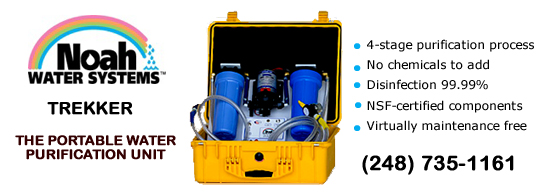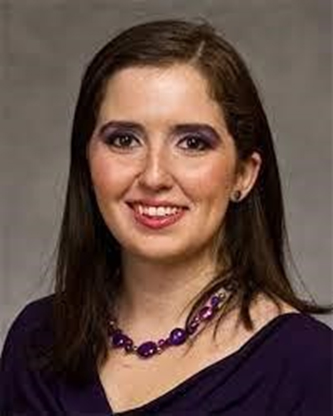Ayse Asatekin, an “entrepreneurial academic” professor at Tufts University focuses on efficient, effective green methods for generating clean, safe drinking water, and for wastewater treatment to prevent contamination of limited water resources.
WT: Please describe for our viewers what position you hold at Tufts University, your lab, your mentorship.
Asatekin: I am an associate professor in the Chemical and Biological Engineering Department at Tufts University and hold the title of Steve and Kristen Remondi Faculty Fellow. I have been here since 2012. My lab focuses on developing new membrane materials for various applications, from water and wastewater treatment to chemical and biochemical manufacturing – both areas need improved effectiveness and better energy efficiency, and we believe that better filtration membranes can potentially do this. Through collaborations, we also work on a broad range of other areas, from energy storage to biomaterials to polymer physics.
I currently have four Ph.D. students, a post-doctoral scholar, a visiting professor whose home base is Shriners Hospital, and several undergraduate students working in my lab.
I am a believer in being a mentor who helps students grow holistically; I try to help them grow as researchers and scientists, not only in terms of research methods but also in terms of communicating their work to broad audiences, being good collaborators.
WT: Protecting our water resources clearly is the driving force of your research.
What is your earliest memory of this mission? Growing up and being educated in Turkey – what impact did water have on you? Understanding water scarcity? Understanding water pollution?
Asatekin: It’s a bit funny to think that back in high school, I joined a student team working on a project on environmental issues through a special program funded by the Foundation for Environmental Education in Europe. Back then, it was novel that we would link with other teams around Europe by sending regular reports over email.
In Turkey, water pollution is a huge problem. There is little regulation and enforcement. Water resources are contaminated not just by municipal wastewater streams but also by discharges from the industry. I grew up in Ankara where a stream that runs through the city is so polluted that it was buried.
In this project, we took a field trip, starting at its spring, where the water is potable, and then followed down its path. It became hugely contaminated so quickly, becoming smelly as municipal wastewater runs into it, turning red next to the textile plant and foamy next to the detergent plant. We took samples and analyzed them with the help of a parent who was an environmental engineer. A few years later, a new water treatment plant treated the wastewater from Ankara before discharge.
I guess it stuck in a certain way. I was lucky to end up with a project focused on water desalination and treatment for my Ph.D., where I was hoping for an environmentally related project. Water has been on my mind all along and is a key focus of my work now in part motivated by these experiences. In fact, we even had a small side-project with collaborators in Turkey, looking into membranes we developed to treat textile wastewater.
WT: Why did you come to the USA? Why Tufts? Why chemical engineering?
Asatekin: I came to the USA to pursue my Ph.D. I had done a double major in chemical engineering and chemistry at the Middle East Technical University in Turkey. I was actually planning to study chemistry because I loved the subject -- I even competed in the National Chemistry Olympics and got Bronze Medal.
My Mom insisted I needed “an engineering point of view” and introduced me to a chemical engineering professor who emphasized how chemical engineers focus on scaling up and developing practical processes from the fundamental science that chemists developed.
At the end of my program, I wanted to pursue academia, largely motivated by the relationship that my parents-- both professors-- had with their students.
I love being at Tufts because it has a rare balance of excellent research with a true commitment to teaching and mentoring, which I value immensely.
WT: As an entrepreneurial academic – you have described yourself as an “accidental entrepreneur” -- how did you come about this identity?
Asatekin: At the end of my Ph.D. program at MIT, I was asked by a friend of a lab mate if I would be interested in starting a company to scale up fouling-resistant membranes that I developed as part of my thesis. I ended up becoming a cofounder without knowing basically anything about entrepreneurship; decisions had to be made fast due to patent deadlines, and it happened really quickly. That’s the ‘accidental’ part.
My initial intent was really to be an outside advisor and leave it to the other cofounders, but that was not to be. I started my post-doc as I would go to fundraising pitches on and off for almost two years. I was at the tail end of my post-doc and joined the company full-time after a new CEO took over. After a year and a half setting up the labs and R&D, talking with potential customers, learning about applications, working with engineers and technicians I realized a start-up was not my ideal career. I really missed comparatively more fundamental research, teaching, and being a mentor rather than a supervisor. I ended up at Tufts.
The deal is, once you get into commercialization, it is hard to get it out of your mindset. In my lab, we try to make every system we work with inherently scalable by making choices with that consideration, from polymer synthesis methods to manufacturing techniques.
As a result, one of the technologies we developed early in my career at Tufts is now being commercialized and sold by an extremely successful start-up. I have the incredible luxury to stay in academia, learn from them, and work with them for further technology development through collaborative grants.
I should note that I own small equity in ZwitterCo and serve as its senior scientific advisor, as per my conflict-of-interest management plan.
WT: How does your involvement with the industry affect your research? Your mentorship?
Asatekin: It’s been a big advantage for mentoring my students. I think it gives a better idea about how the idea of research objectives compares with how industry looks at it. Our connection also enables students to look into different solutions and different career paths.
The start-up experience forced me to become a lot savvier about protecting intellectual property -- something that is underappreciated. I try to teach this to my graduate students and post-docs too.
WT: As a mom, what do you hope for your family? How has your role as a parent shaped your teaching/mentoring?
Asatekin: I have two little girls, 5 and 2 years old. My utmost goal for them is to grow up to be good human beings, and caring about the world is part of that. I admit I am a geeky mom; my older daughter knew how to pronounce
“thermodynamics” at the age of 2.
I try to do my best to help them satisfy their curiosity about whatever they like. I also often talk about how what we do impacts our world.
My 5-year-old daughter goes to a preschool affiliated with Tufts’ Early Childhood Education Department. They have interesting (and progressive) curricula.
A topic last year was the Dakota Access Pipeline, the Native American Tribes’ connection with water, and their protest -- as it risked contaminating their water resources.
“How to be a water protector” became the focus. Together with her teacher, we talked to the children about how, beyond protesting, you can use other professions and your various skills to be a water protector.
The kids experimented with black paint (simulating oil) dispersed in water, and they made sand filters to clean water. I made a Zoom call as a “water protector expert” to tell them how everyone can do so many things to be water protectors – protest, yes, but also teach others about water pollution, write about it, build things that protect water or remove pollutants. These 4 -year- olds asked such good questions! It was absolutely amazing.
We also run a summer camp for middle school girls, in collaboration with the Centre for Engineering Education and Outreach here at Tufts. It’s more broadly about chemical engineering, but we do spend most of the days on water-related activities.
Girls often feel engineering is not a good fit for them, but engineers have so much impact on improving our lives, protecting the environment, and protecting human health. These are often areas girls are drawn to, and I think the role that engineers, especially chemical engineers, play in this is often underappreciated. We support a diverse group of girls and share our joy in an area of engineering.
WT: ‘When the student is ready the teacher appears’, is a saying that most of us are familiar with. Some would also say ‘When the teacher is ready, the students appear.’ What exciting things do your students teach you? How does this create a successful team? Why is a team of everyone moving in the same direction important to you?
Asatekin: I truly believe that, especially in science, we do better when we work together to find solutions rather than compete against each other.
I have been lucky to have creative students who agree with this. It is always a joy when students mature to a point where they come up with a new direction they want to work on and push me toward. I learn a lot from them. Not just about science, but also about being a better person.
WT: You are very young to have accomplished so much. There is still a long journey ahead of you. What do you envision? How do you want to continue making an impact on the world?
Asatekin: One of the most exciting parts of the journey ahead is that I don’t know exactly where it will take me. I think we’ll work on water-related issues for a while, but I am increasingly enjoying going in new directions, often through collaborations. In the membrane area, my long-term aspiration is to develop membranes that will cut the energy use of chemical manufacturing, which is an estimated 10-15% of total energy use in the US. In addition, I have been venturing into and learning about energy storage and biomaterials applications through exciting collaborations, both with great potential impact.
My hope is to develop more technologies that make a positive change in the world. But in the end, I often think and hope that my real impact lies in students I have the privilege of mentoring and supporting.
If that can make even a small difference in their lives, that is what matters.




